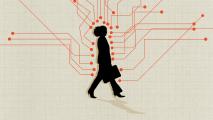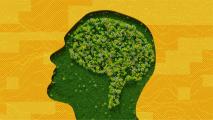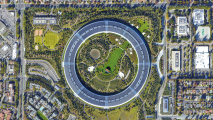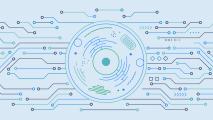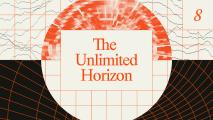
Artificial Intelligence
Rapid advancements in AI today have the potential to change everything about everything. But will they? We’re exploring what will change, how, and whether we’re building digital gods or stochastic parrots.
More
The AI vibe shift: From doom to realism
Existential anxiety surrounding AI is giving way to more realistic concerns about its potential impact on the workforce and beyond.
AI will never be a shortcut to wisdom
Real understanding, argues thought leader Jeff DeGraff, doesn’t come from outputs — it comes from practice.
No, AI won’t take all the jobs. Here’s why.
When you consider the mechanics of integrating AI into the job market, the idea that it will take all our jobs quickly falls apart.
AI doomerism isn’t new. Meet the original alarmist: Norbert Wiener
Decades before Geoffrey Hinton and Eliezer Yudkowsky raised alarms, the computer scientist warned AI could steal jobs and outsmart humans.
A tragedy, a lawsuit, and the birth of an AI moral panic
A lawsuit claiming an AI chatbot caused a teen’s suicide risks sparking a new moral panic, echoing past fears built on distorted evidence.
Why AI gets stuck in infinite loops — but conscious minds don’t
Anil Seth suggests the difference is that living beings are rooted in time and entropy, a grounding that may be essential for consciousness.
From cryonics to aging: How AI is transforming human health
From curing rare diseases to extending lifespans, four biotech founders share how AI is rewriting the future of medicine.
What if humans mastered every aspect of nature?
A bold vision of a 10x better future where humanity has mastered biology, energy, and matter to unlock unprecedented progress.
Governing AGI: Model laws, chip wars, and sovereign AI
The US must regulate AI in a way that protects society, preserves America’s competitive edge, and fosters innovation — all at the same time.
If we want artificial “superintelligence,” it may need to feel pain
Philosopher Jonathan Birch argues that sentience might be essential to “higher” forms of intelligence, including truly intelligent AI.
The age of industrialized imagination
By slashing costs, AI will spark a creative renaissance in the entertainment industry, leading to more working artists, not fewer.
America’s next grand mission: Build an AI-powered society for all
America’s new mission isn’t just to invent the new technology of AI. It must invent the systems that then make the most of AI.
AI’s next frontier: Modeling life itself
Biologists are skipping the petri dish and using AI-powered virtual cells to experiment in silico.
Second opinions in the age of ChatGPT
ChatGPT and other AI-powered tools are quietly reshaping how people interpret, challenge, and act on medical advice.
The real danger in “I, Robot” isn’t AI. It’s humans.
“I, Robot” is a convincing allegory in favor of embracing AI innovation rather than over-regulating, centralizing, and stifling it.
In humanity’s dance with technology, people lead. Always.
As the history of tech demonstrates, we do not have to simply accept and adapt to AI. We can, collectively, choose what to do with it.
Silicon Valley has entered its superstar engineer era
In the race to AGI, tech companies are borrowing playbooks from sports, finance, and film to land elite talent. Here’s why.
AI can dramatically expand human agency
If we get AI right, it will accelerate empowerment, enabling people to learn any subject, start any business, and realize any vision.
A personal assistant for everyone: The promise of ambient AI
We’re leaving the app era and entering the age of ambient AI: intelligent help that’s always on, but never in the way.
Gen Z: We must resist the temptation to cheat on everything
Adopting the “cheat on everything” mentality — treating thinking as a burden AI can eliminate — is not only wrong, it’s dangerous.
Get inspired with the most innovative stories shaping the world around us.






